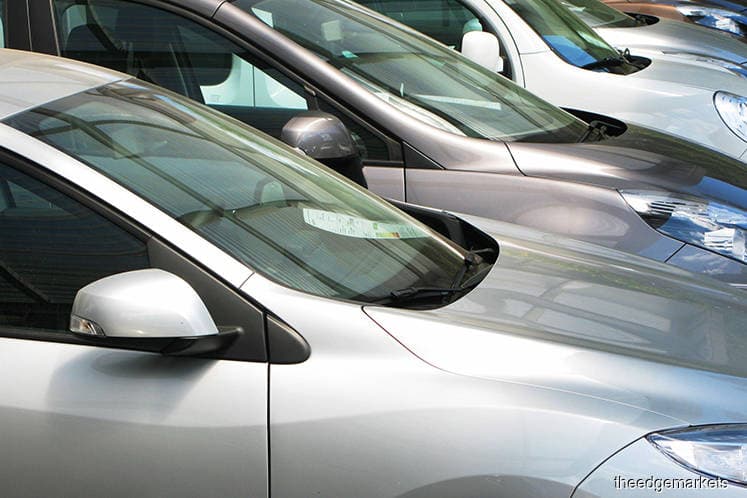
This article first appeared in The Edge Malaysia Weekly on October 23, 2017 - October 29, 2017
TALK of the government liberalising the computerised vehicle inspection market has resurfaced just before Budget 2018 is tabled in Parliament on Friday. Industry sources say this is the first step towards the implementation of the vehicle end of life (VEOL) policy.
The service has long been the domain of DRB-Hicom Bhd’s subsidiary, Puspakom Sdn Bhd. After many years of allowing the monopoly, the government feels that it is time to open up the market to new players so that more inspection centres can be set up, the sources say.
“The government is opening up the vehicle inspection industry to other players. This is to prepare for the eventual implementation of the VEOL policy. They need more outlets to conduct vehicle inspection before the policy can be implemented,” says an automotive analyst.
“However, the issue is quite sensitive because if a car fails the inspection, the owner has only two options — repair it or scrap it. Both actions require money and any policy that burdens the people will surely be avoided now with a general election looming.”
Once implemented, the policy would require private cars beyond a certain age to be inspected before they can be allowed on the road.
To do that, about 450 inspection centres are needed for the VEOL policy to run smoothly, Deputy International Trade and Industry Minister Datuk Ahmad Maslan was reported to have said in 2015. At present, there are 55 Puspakom centres across the country.
DRB-Hicom did not respond to questions sent by The Edge for this article. The Ministry of Transport also did not respond to questions sent to it as at press time.
Among the names bandied about as the likely concessionaires for computerised vehicle inspection centres are Naza Group, Sime Darby Bhd and UMW Holdings Bhd.
However, a Naza Group spokesperson denied having any knowledge about the deal when contacted by The Edge.
Some form of the VEOL policy has been put in place since 2007. Proton Holdings Bhd back then had a programme that gave owners of Proton cars a RM5,000 rebate to trade them in for a new model. The programme ended in December 2009.
The Malaysia Automotive Institute has carried out a study on the “Cash for Clunkers” programme, which is essentially what Proton had. However, the study went on the basis of opening the programme to all marques in the country.
The outcome of the study is not known. Malaysian Automotive Association (MAA) president Datuk Aishah Ahmad has said the programme would increase demand for new cars and boost the local automotive industry.
If the Cash for Clunkers programme had been implemented in 2015, vehicle sales or the total industry volume would have increased to 750,000 units, she said.
Last year, the automotive market in Malaysia hit its lowest level of sales since 2009, with only 580,124 units sold. Up to last month, the total number of cars sold this year was 1.78% higher than the previous corresponding period, at 425,711 units.
Is vehicle inspection a lucrative industry?
For its financial year ended March 31, 2016, Puspakom posted a profit after tax of RM11.8 million on the back of RM133.3 million in revenue.
According to data by Euromoney Institutional Investor company CEIC, there were 13.3 million private cars in Malaysia as at June.
Together with lorries, motorcycles, buses and taxis, there were 28.2 million motor vehicles.
Puspakom offers several types of inspection, charging different fees depending on the vehicle model and the type of service rendered.
If the Cash for Clunkers programme had been implemented and the automotive industry’s volume increased to 750,000 units as projected by MAA, inspection of these cars would have brought in RM45 million in revenue a year for Puspakom.
There are also 400,000 used cars being sold in the market, as estimated by Tony Khor, president of the Federation of Motor and Credit Companies Association of Malaysia, Kuala Lumpur and Selangor. At an inspection fee of RM30 per car, this market brings in a revenue of RM12 million a year for Puspakom.
As for the roadworthiness test should the VEOL policy be implemented, if 50% of all cars in the country are above the 10 years’ threshold, Puspakom can expect a revenue of RM332 million.
In total, Puspakom would get a revenue of RM389 million if the VEOL policy is implemented. However, it should be noted that once the first batch of vehicles aged 10 years and older has been inspected, the subsequent years would have a smaller number of vehicles to be checked.
There are a lot of other inspections that are required for private cars and other types of motor vehicles. Commercial and public transport vehicles are also a big market for vehicle inspection as they are required by law to pass the checks before their road tax can be renewed.
Save by subscribing to us for your print and/or digital copy.
P/S: The Edge is also available on Apple's AppStore and Androids' Google Play.